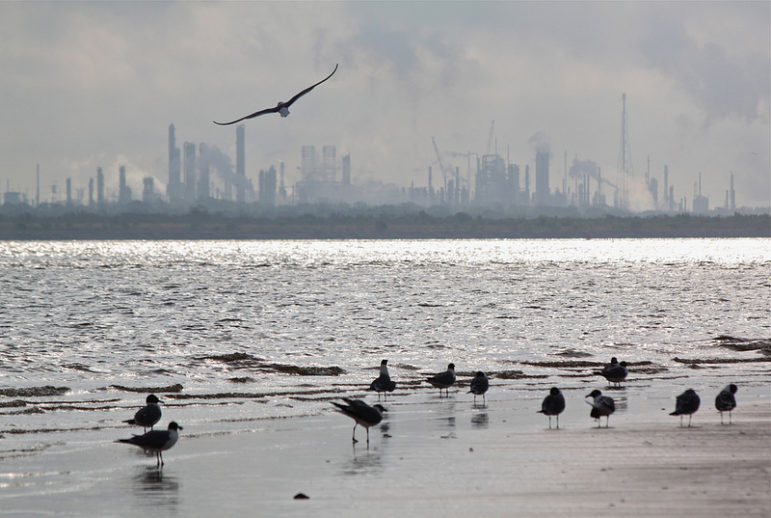
July 13, 2016; Washington Post
When ExxonMobil changed its mind about its science and became an opponent of claims that fossil fuels were major contributors to global warming, was it just expressing an opinion, or was it protecting its economic interests and deceiving investors and the public? Republican members of the House Science, Space, and Technology Committee issued subpoenas last week to try to stop two state attorney generals actively investigating this question and eight environmental organizations that encouraged the AGs to act.
Last September, the Los Angeles Times, along with the nonprofit Inside Climate News and the Columbia School of Journalism, issued an in-depth look at ExxonMobil’s role in the climate change debate. “Exxon’s own research confirmed fossil fuels’ role in global warming decades ago,” it read. “Top executives were warned of possible catastrophe from greenhouse effect, then led efforts to block solutions.” The report spotlighted “how corporate leaders supported cutting edge research and then, despite the mounting evidence being produced by their own scientists, reversed course and became a major climate change denier.”
The publication of this report raised questions about whether ExxonMobil’s efforts violated securities laws. Earlier this year, NPQ staff member and nonprofit news contributor Shafaq Hasan reported, “Several states, including California, New York, and Massachusetts, and the Virgin Islands have launched fraud investigations into whether and to what extent the Exxon company lied to its shareholders and the public.”
The states took action on their own in the belief that the federal government was unable or unwilling to take the issue on. Their concern was that by not revealing the seriousness of the environmental risks posed by fossil fuels, the company had intentionally misled their shareholders and potential investors. ExxonMobil and their supporters denied violating any laws and said that they merely changed their opinion about the meaning of the science being produced by their scientists.
Sign up for our free newsletters
Subscribe to NPQ's newsletters to have our top stories delivered directly to your inbox.
By signing up, you agree to our privacy policy and terms of use, and to receive messages from NPQ and our partners.
Last Wednesday, members of Congress acted to protect ExxonMobil. Speaking for the Committee, Rep. Randy Weber (R-TX) called the state AGs a “posse” that had “veered away from enforcing the law to environmental activism.”
Since when did it become a crime to hold an opinion? Every individual corporation has the right to conduct scientific research and formulate opinions, their own opinions, free from the threat of prosecution.
The Committee not only sought to gather information about the state investigations but also looked into the efforts of environmental organizations to advocate for state action. Interestingly, the Committee did not seek to take responsibility for looking into ExxonMobil’s actions.
For the attorneys general, this is a battle of jurisdiction and political power. Eric Soufer, a spokesman for New York Attorney General Eric Schneiderman, one of those subpoenaed, said, “The singular purpose of these [state] investigations is to determine whether Exxon committed serious violations of state securities fraud, business fraud, and consumer fraud laws. […] Whether they issue a subpoena or not, this Attorney General will not be intimidated or deterred.”
For the environmental groups, this is a battle for their continued ability to speak freely and do their work. Ken Kimmell, president of the Union of Concerned Scientists, saw the Committee’s action as “an abuse of power that goes way beyond the House Science Committee’s jurisdiction and amounts to nothing more than harassment. It’s also just plain wrong to investigate a nonprofit for doing its job—in this case, providing public officials with, science and evidence to hold fossil fuel companies accountable for deception on climate change, one of the world’s most pressing problems.”
Corporations may have the right to their own opinions, but do they have the right to lie in ways that deceive investors? This should be an easy question to answer. The leaders of the House Science, Space, and Technology Committee seem to be struggling with it, which is strange. Perhaps the answer lies, as suggested by the environmental group 350.org, in the contributions to those supporting the subpoenas from the oil and gas industry.—Martin Levine











